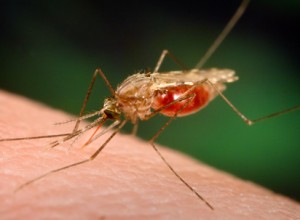Malaria is still a life-threatening disease – Dr Tetteh
 Dr Michael Tetteh, the Head of the Herbal Unit at Tema General Hospital, says the World Health Organisation (WHO) still sees malaria as a life-threatening disease.
Dr Michael Tetteh, the Head of the Herbal Unit at Tema General Hospital, says the World Health Organisation (WHO) still sees malaria as a life-threatening disease.
He said despite global efforts, the disease remained a significant health risk, with alarming statistics highlighting its commonality, particularly in Africa.
Dr Tetteh said statistics showed that in 2021, 247 million malaria cases and 619 deaths were recorded worldwide, of which Ghana accounted for 2.2 per cent of the overall cases and two per cent of malaria-related deaths, putting the nation among the top 15 highest-burden malaria countries.
He said that for malaria deaths, about 80 per cent were recorded in children younger than five years.
Again in 2022, however, Ghana recorded a decline from 6.1 million cases recorded in 2021 to 5.2 million cases.
He further stated that WHO had approximately 200 million reported cases, with about 80 per cent originating from Africa.
Dr Tetteh, who is also a Herbal Physician, disclosed this during the weekly “Your Health! Our Collective Responsibility! A Ghana News Agency initiative to promote health-related communication and providing a platform for health information dissemination.
Highlighting the seriousness of the issue, Dr Tetteh added that malaria was one of the diseases with high mortality rates in Ghana.
He explained its mode of transmission as through the bite of the female Anopheles mosquito, which is most common in tropical regions of the world.
However, the infectious disease is not contagious, and it is stressed that malaria, like other diseases, can be prevented.
Dr Tetteh provided some practical prevention measures, such as sleeping under treated mosquito nets, using insecticide sprays, and avoiding outdoor activities or wearing clothing that covers most of the body, especially in mosquito-prone areas like bushy regions, stagnant water surfaces, and slums.
He said maintaining a balanced diet and ensuring a clean environment, particularly during the rainy seasons, also helps prevent malaria.
Source: GNA
